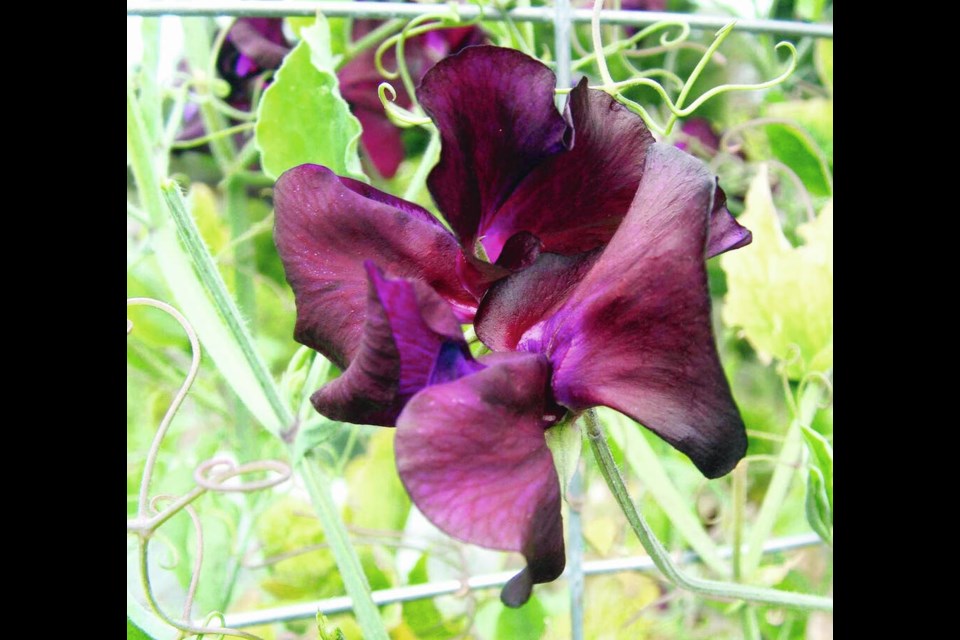Most of my growing-up years happened in a home on Tattersall Drive in Saanich. The house was on a rocky slope, with concrete steps leading up to a length of sitting-out space by the front door.
A massive retaining wall below that space extended down to the front lawn, with a narrow planter-ledge at about waist-high interrupting the wall’s descent.
That planter-ledge was where my father showed me his method of transplanting. He called it “puddling.”
Into the prepared soil he made a series of hollows, their size depending on the extent of the transplants’ roots. Into each hole he carefully snuggled a transplant, arranging enough soil around the roots to partially stabilize the plant before applying a gentle flow of transplanting solution around the roots. Once the liquid had drained, the roots were covered and the transplant was firmed in to the soil.
I still use this transplanting procedure, “puddling” in a batch of five or six transplants at a time, and almost never lose a plant. For the transplanting solution, I favour a dilute blend of liquid fish and seaweed fertilizers.
Lifelong gifts. That “puddling” lesson was a gift, one that has served me well through my gardening life.
Another gift inherited from my father is a love of reading. He was a frequent visitor to Victoria’s used book stores. From those stores he supplied me with a constant flow of books, two of which I have kept: Anne of Green Gables and Helen’s Babies.
Like my father, I very much enjoy researching answers to readers’ questions and chasing down details of plants I’m interested in. Also like my father, who wrote this column before me, I am thankful to be engaged in an occupation that involves learning something new almost every day.
Gardens as therapy. Every summer of my childhood, my father grew long rows of gladioli for flowers to distribute around the community. He tended a heart-shaped rose garden at one end of the front lawn.
The family of five children spent many sunny summer days in the backyard, where sweet peas bloomed on the wire walls of an unused chicken coop. The fragrant blooms were cut and placed in my mother’s lovely smoked glass vase, which I now use for my garden’s flowers.
My father often spoke of the garden’s healing powers. He felt certain there was “good medicine” in soils, plants, and flowers. Ongoing scientific research is affirming his beliefs.
A recent CBC Saturday morning radio interview reminded me of my father’s thoughts as it also prompted reflection on major changes I’ve noticed in my own approaches to plants, planting and garden care in recent years.
Previously, I had followed a well-entrenched habit of approaching each gardening session as a sort of military operation as I marched briskly to a target work area well armed with an extensive “to do” list and an array of tools. No stopping until the projects were completed, everything on the list crossed off, the battle won.
Over the past few years I’ve eased into a more relaxed pace, pausing often to monitor or appreciate various plantings and taking frequent water-sipping breaks. Projects left unfinished no longer cause despair; they become simply part of gardening.
Often, as I reflect on these changes in attitude, the W. H. Davies poem Leisure comes to mind: “What is this life if, full of care,/ We have no time to stand and stare.”
The interview causing this reflection was with a practitioner of horticultural therapy, a way of using plants, gardens and gardening for promoting physical, psychological, cognitive, social and spiritual health.
What makes horticultural therapy work so well to promote multi-faceted health is the encouragement it offers to shift a person’s mindset from one of just “doing” to one of “being.” The “doing” still exists, but at a slower pace that allows for stopping, observing, appreciating. Such a pace, and mindset, creates space for noticing a ladybird beetle, or for absorbing subtle colour tints in a flower.
Horticultural therapy also helps to foster association with plants. We share common needs for adequate housing, water, nourishment, and support. Plants, gardens, and Nature are not such separate entities from us as we might think.
A Happy Father’s Day tomorrow as you celebrate the paternal bonds that bless and support your families.



